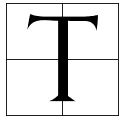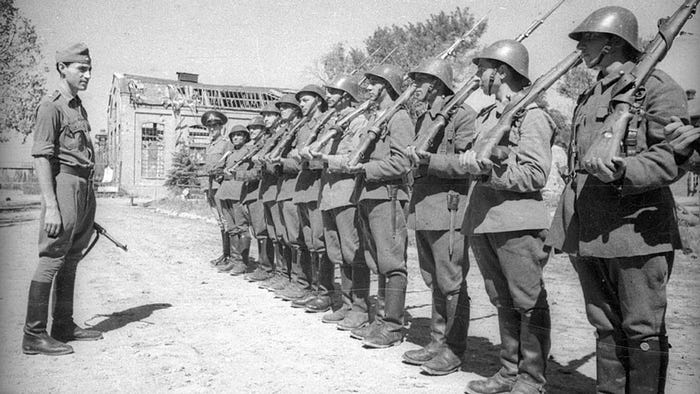 he Europe of 1940 witnessed the rapid victory of German troops over Western allies, much to the surprise of military observers. The fighting continued with a strong air offensive on England, a very costly form of confrontation with fuel consumption and the loss of quality aircraft. Adolf Hitler needed strategic resources and found them with the support of the Soviet Union, to be more exact, with the help of Comrade Joseph Vissarionovich Stalin.
he Europe of 1940 witnessed the rapid victory of German troops over Western allies, much to the surprise of military observers. The fighting continued with a strong air offensive on England, a very costly form of confrontation with fuel consumption and the loss of quality aircraft. Adolf Hitler needed strategic resources and found them with the support of the Soviet Union, to be more exact, with the help of Comrade Joseph Vissarionovich Stalin.
The Soviet Union’s demands
The relations between these great powers were resolved by meetings at the highest level, and in November 1940, Commissioner Veaceslav Mikhailovich Molotov, Comrade Stalin’s right-hand man, visited Berlin. Only oil and grain should have flowed, but Adolf Hitler was shocked to learn of the Kremlin’s wishes. Moscow demanded, among other things, points of support for the Soviet fleet in the Bosphorus and the Dardanelles, as well as in Thessaloniki, Greece being a coveted space by the Italian ally. Adolf Hitler had to agree with Soviet rule in Iran and communist bases in the Persian Gulf. It would have been a huge step towards achieving the ideological goal they called the ‘world revolution’ by capturing British oil reserves.
The strategic bombers would have controlled the entire Arab region and the paratroopers would have occupied everything that was essential to maintain control of communist Moscow. The BT series fast tanks would have been perfect for large space operations. Points of support on the Dalmatian coast of Yugoslavia were not forgotten, and Bulgaria had to be included in the communist world. Sofia’s entry into the communist sphere would have had a special geostrategic impact.
The presence of Soviet troops south of the Danube would have brought the red-star tanks only 60 km from Bucharest, and the Prahova region, with the Wehrmacht’s essential refineries, was not too far away. As Romania did not have enough anti-tank weapons, the defense of the Carpatho-Danubian-Pontic country was impossible to achieve. In addition, the Soviet ground forces were approaching the Bosphorus and the Dardanelles, the two straits being interesting for a future outflow of the Red Fleet into the Mediterranean. It was a perfect indirect strategy action by the Kremlin.
The hosts were shocked when they heard about Soviet bases on the coast of Denmark, in order to have access to the North Sea and, implicitly, to the Atlantic Ocean. Soviet units were allegedly introduced into territory occupied in April 1940 by German troops. No other claim by the Kremlin went down well with those in Berlin. Romania had lost, in June 1940, the territories of Bessarabia, Northern Bukovina, and Herta County, following an ultimatum issued by Commissioner Molotov.
Romania caught between two powers
The Romanian army, lacking anti-tank and anti-aircraft weapons, was forced to withdraw without a fight and abandon the population to a new communist experiment, with deportations and exterminations. At the time, Moscow was also demanding the sovereignty of Southern Bukovina, which would have meant that the city of Suceava would have fallen beyond possible future borders.

Adolf Hitler did not have a high degree in the military arts, but he could not help but notice the critical situation in which Romania found itself. The army of Bucharest would have had its flank uncovered and the defense of the city of Iasi would have been impossible. The capital of Romania went from 429 km starting from Chernivtsi to 358 km departing by air from Suceava. Berlin was interested in defending the oil-rich Prahova region, which was essential for the operation of the tank-aircraft binomial needed for large-scale offensive operations such as operation Barbarosa, which would follow two years later. The Soviet armies were approaching from the north and the one from the east was about 200 km away.
Although official relations remained seemingly good and trade continued, both sides moved onto military training for supremacy in Europe and, implicitly, in the world. The German chancellor ordered the Barbarossa Plan to be drawn up, and the path of war was seen as the only solution to the problems in the socialist camp.
The reason as to why it is imperative to mention Romania so much in this agreement is due to the important role they played during the war. Despite its small army, as well as its small territory, Romania always gave everything it had towards winning the war. This includes their most valuable resource at the time, oil. As the Soviet Union had an abundance of oil at the time, they weren’t interested in Romania for this exact reason. However, Germany could not get enough oil to power its mechanic military power.
Romania was not only located in the epicenter of the Second World War but also, it had a very important geographical location, as it allowed the Axis powers from the west to move in their troops through Bessarabia into the Soviet Union.
Even if this agreement had worked, it would not have lasted for a long time, as we are talking about two of the biggest military powers of the 20th century showing their hunger for more and more power. They were deeply influenced by both fascism and communism. Germany would end up declaring war, taking over most of Europe, and starting Operation Barbarossa on the 5th of December 1941. This operation consisted of a plan to use the Blitzkrieg tactic (Lighting War) to take over the whole of the Soviet Union.
Avid Writer with invaluable knowledge of Humanity!
Upcoming historian with over 30 million views online.
“You make your own life.”





